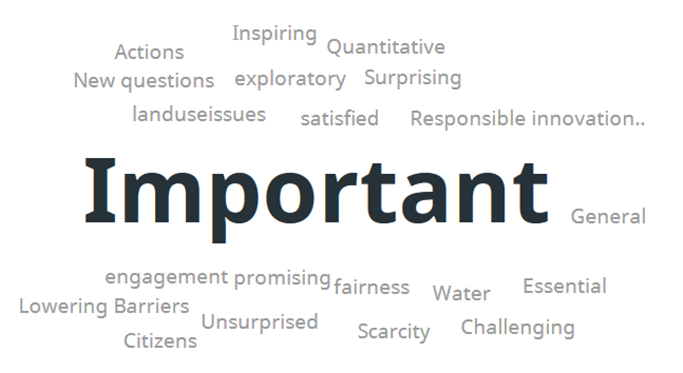The Danish Board of Technology explores societal implications of LICROX technology
On June 21st, the Danish Board of Technology (DBT) facilitated an engaging online seminar with 38 participants to discuss the societal consequences and potential responses to the LICROX technology. The discussion was grounded in the findings of a comprehensive citizen engagement process, conducted by the DBT, aiming to gather valuable insights for the LICROX exploitation plan. This seminar culminated in a Stakeholder Seminar Report summarizing the key takeaways from this crucial dialogue.
Insights from Participants
The report highlights the diverse range of insights and reactions from participants during the seminar. Participants acknowledged the importance of fresh water as a fundamental resource and expressed concerns about LICROX’s distance from market readiness (low TRL). There was consensus on the challenge of communicating the very complex technology of LICROX to citizens without oversimplification. The potential impact on land use was viewed as a critical area requiring further investigation.
One participant emphasized the importance of exploring tangible consequences, particularly from a land use perspective. They stressed that integration into society is a policy-level decision, often leading to products primarily serving B2B markets. Surprising results led to a call for deeper exploration of citizens’ willingness to contribute to a sustainable transition.
Word cloud generated from participants’ answers to the question: What one word would you use to describe our findings?

Social Acceptability and Solar Fuel Technologies
Participants also discussed the broader implications of social acceptability on various solar fuel technologies. Dependency on non-EU countries for energy supply and the ability to produce solar fuel within the EU were highlighted as factors that could boost social acceptance. Effective land utilization, multiple-use scenarios, and clear demonstrations of social acceptability were seen as essential for fostering investment and market entry.
There was a consensus that giving citizens a say in technology development limits the concentration of power, making societal engagement a delicate balancing act. Effective communication and energy literacy were identified as key drivers for the acceptance of solar fuel technologies. Additionally, a potential conflict of land use between solar-based technologies and other applications was acknowledged as a significant challenge.
Word cloud generated from participants’ answers to the question: What one word would you use to describe the current landscape for solar fuels?

Strengthening the Implementation of Solar Fuels
The participants explored ways to strengthen the wide-scale implementation of solar fuels. They stressed the importance of transitioning from laboratory experiments to practical demonstrations to showcase economic benefits. Communicating the availability and significance of solar fuels in the present, rather than the distant future, was viewed as crucial.
Involving a diverse range of stakeholders, including society, local communities, and workers, was seen as essential for accelerating technology uptake. Strategic research agendas that attract industry investment, efficiency improvements, and scalability were also discussed as ways to expedite technological development.
Word cloud generated from participants’ answers to the question: What is the most important element in strengthening the wide-scale implementation of solar fuels?


